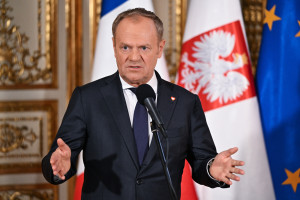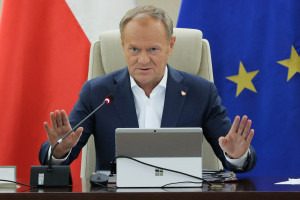Alarm for solar panel owners. New threat

Europe's power grid could be at serious risk from a cyberattack on photovoltaic installations. As it turns out, all it takes to carry out a successful attack is one hacker and a batch of solar panels.
- The growing popularity of distributed energy, especially photovoltaic installations, opens up new opportunities for cybercriminals.
- As Bloomberg warns, this may seriously affect the stability of the power system.
- The scale of the threat is so large that NATO has decided to conduct special exercises to prepare for this type of attack.
Vangelis Stykas, co-founder of cybersecurity firm Atropos.ai, says he knows how to compromise the security of Europe’s power grid. Using a laptop and smartphone at his home in Thessaloniki, Stykas bypassed the firewalls of panels around the world and gained access to more power than flows through the entire German grid.
This so-called white hat hacker - someone who tests software so that companies can fix its vulnerabilities - reached deep enough into the control systems that he could disable devices, drastically disturbing the balance between energy demand and supply. Such a sudden change could lead to grid overload and, as a result, to its automatic shutdown - explains "Bloomberg."
The agency adds that:
- home photovoltaic installations mean millions of new connection points to the network, which creates a huge field of activity for cybercriminals;
- the most serious consequences of such an attack could include widespread network failures across Europe;
- This growing threat is causing sleepless nights for network operators and governments already struggling with increasing cyberattacks.
According to the International Energy Agency, the average number of weekly cyberattacks on energy companies worldwide has doubled in two years, reaching about 1,100 incidents per week.
The risk is being downplayed. It's a threat we should take much more seriously, Harry Krejsa, research director at the Carnegie Mellon Institute for Strategy & Technology in Pittsburgh, warned in an interview with the Columbia Energy Exchange podcast.
NATO is aware of the problem and organized a security exercise in Sweden to detect and eliminate vulnerabilities in solar, wind and water systems. According to Bloomberg, it was the first such exercise in the world, organized in connection with the war in Ukraine and the Middle East and tensions between the West and Russia and China, the largest producer of solar panels.
- The threats to renewable energy systems look completely different than what we are used to. There are many possibilities for attack. These systems are vulnerable - said Freddy Jonsson Hanberg, director of the September NATO sessions.
ADVERTISEMENTS
wnp.pl





